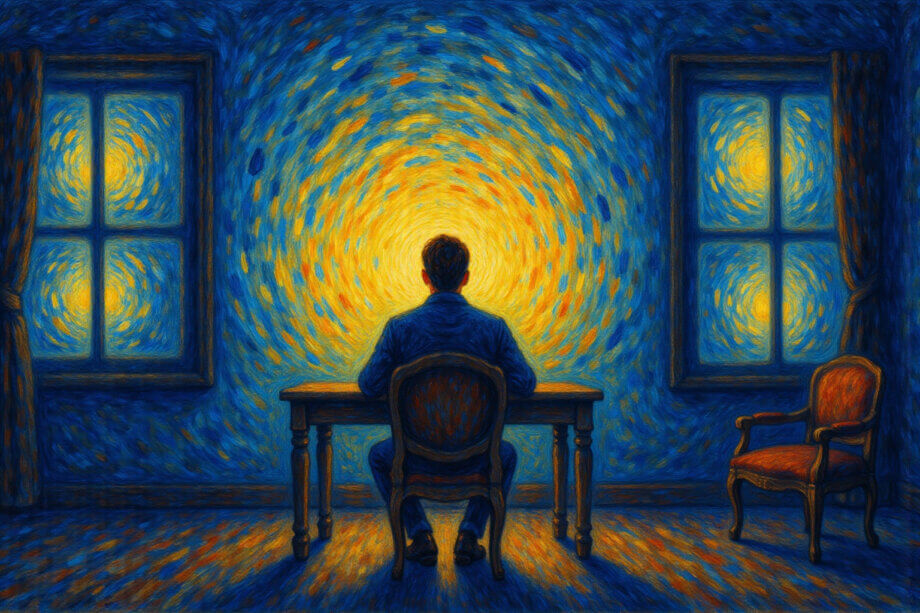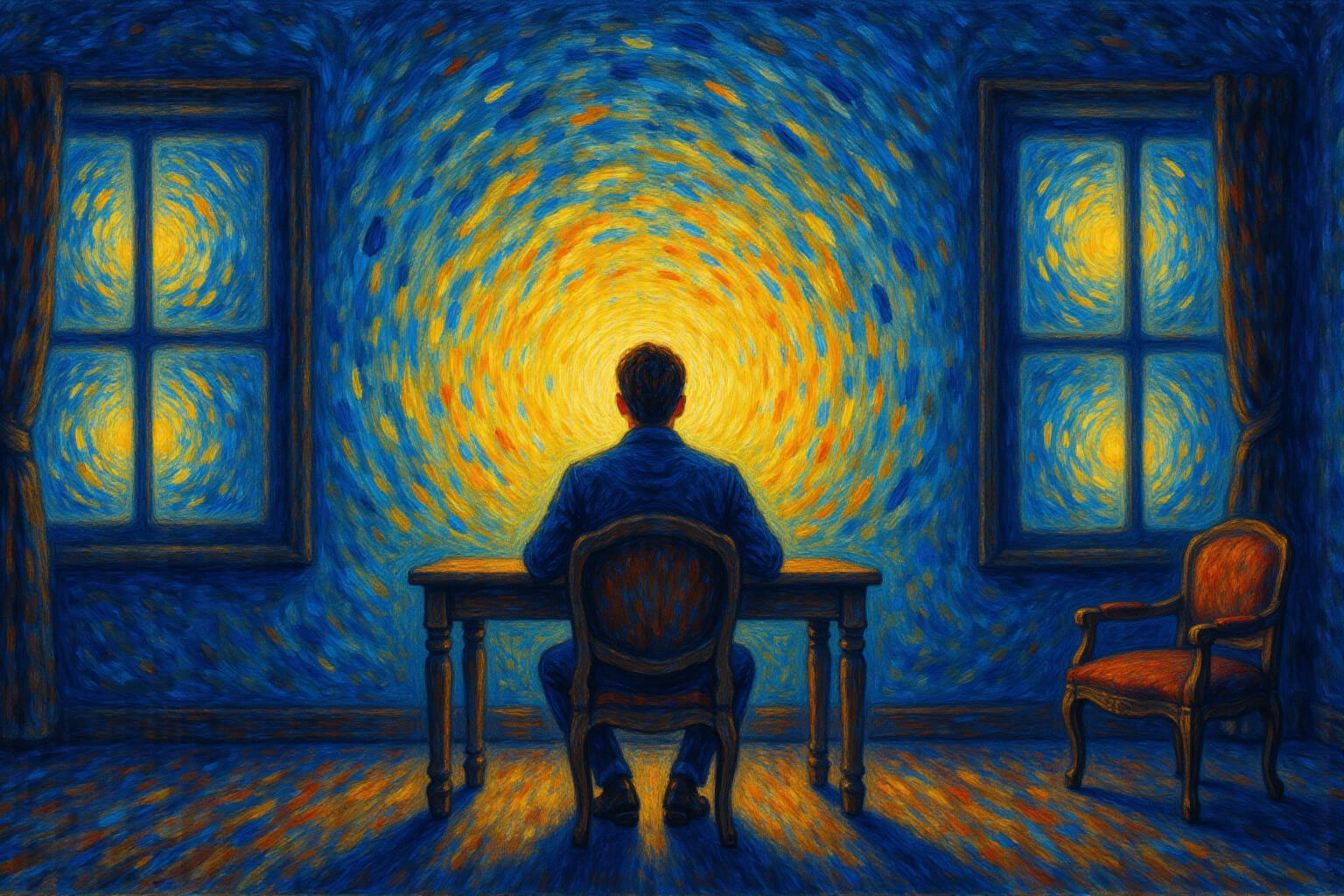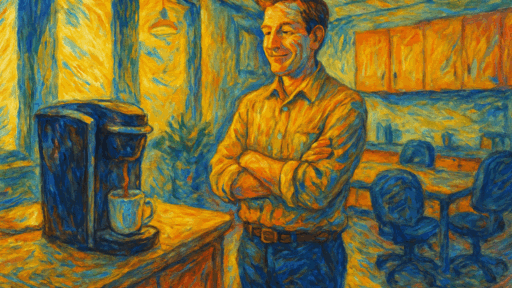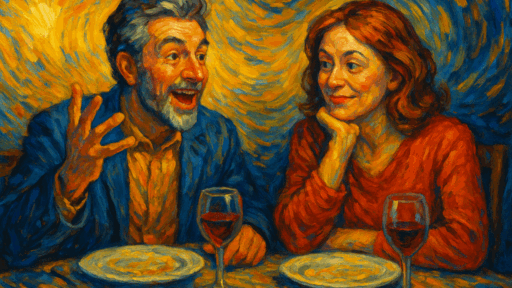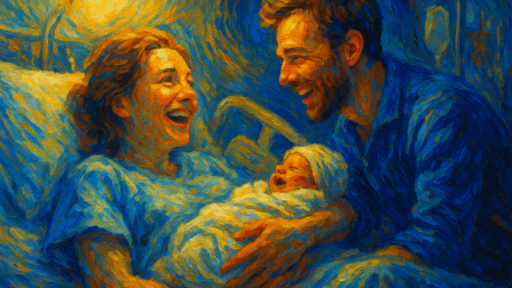Part 4 of 5 of My Journey From Faith.
“I hadn’t lost God yet. But He was already starting to feel like someone I used to know.”
At some point, the world outside my faith started to look bigger than the one inside it.
It wasn’t a single moment. No lightning bolt. Just the slow, uneasy realization that what I believed about God didn’t quite fit the world I was living in.
I’d spent years tracing patterns in Scripture—proofs of design, evidence of sovereignty, the clean logic of redemption. But when I looked around, life didn’t move like that. It was uneven. Messy. The world was full of suffering and still somehow full of people thanking God for good parking spots and promotion emails.
It felt like two different realities trying to share the same sky.
The math didn’t hold.
For a while, I tried to fix it.
I doubled down on the formulas—the right books, the right teachers, the right prayers. I wanted to be faithful, to make it all line up again.
But the deeper I dug, the more the seams started to show.
One passage sang of mercy; another thundered with vengeance.
One preached love; another, obedience.
It wasn’t that I thought Scripture was lying—it was that the picture it painted kept shifting.
The God I prayed to felt steady and good, but the God I studied was moody, unpredictable, sometimes cruel.
And every pastor seemed to have a verse to prove his version.
Each explanation just made the ground a little less solid.
The harder I tried to defend it all, the more I felt like I was defending a portrait someone had already retouched—polished and holy and strangely hollow.
It didn’t shake my belief in God right away. It just made me tired.
I remember sitting at my desk late one night, pages of notes scattered around me, half-empty coffee cup beside the Bible I’d underlined to death. The words blurred together until they stopped meaning anything.
For years I had chased God through theology—parsing verbs, memorizing doctrine, diagramming salvation like an equation I might one day balance. And in doing so, I somehow turned the person I loved most into a problem I needed to solve.
I missed Him.
Not the sermons or the systems—Him.
The quiet presence I used to feel on long drives, the whisper in the stillness, the sense that the world was stitched together by love.
I didn’t stop believing overnight.
But I did start admitting that belief had become work.
I’d show up at church, sing the songs, nod through the sermon—and feel nothing. Then I’d feel guilty for feeling nothing.
Faith had once been breath; now it was a checklist.
And still, I didn’t want to leave.
I wanted to recover what I’d lost.
I told myself maybe it was just a dry season, that everyone went through them.
But underneath the rationalizations, I could feel it—something shifting, loosening.
The language I’d lived inside no longer fit.
One night, after everyone had gone to bed, I opened my Bible and read the same verses that had once lit up like neon.
They just sat there.
Beautiful words. Empty page.
That’s when it hit me: the faith I’d been fighting to keep wasn’t the same faith that had found me all those years ago.
I’d been clinging to the shell of something sacred, mistaking the structure for the substance.
It wasn’t rebellion. It wasn’t anger.
It was grief.
Because faith had once made the world shimmer.
Now it just made it smaller.
I hadn’t lost God yet.
But He was already starting to feel like someone I used to know.


